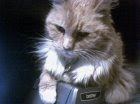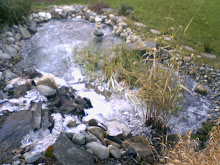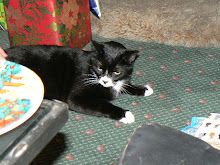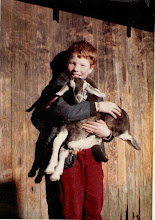As I set out on the next leg of my quest for library 2.0 literacy, it has occurred to me that our library’s leadership may have a lot to thank my husband for. For instance, he has been known, on those rare and special occasions when I am being particularly annoying or whiny at home, to encourage me to blog by gently suggesting I go do my “library thing.”
Yes, there it is, folks, that’s this week’s limpid segue into the realms of krl2pt0.
I am not going to sing the praises of the many beguiling applications unique to LibraryThing. I’ll let you discover whatever particular charms it may have for you through your own explorations. I will, however, because I am not a totally mean person, tell you of its potential and immediate lures for the likes of moi. If, like me, you are one of those people who checks out more library books than you actually have time to read, you may find a parallel allure in the world of LibraryThing.
LibraryThing strikes me as uniquely suited to making long lists of books and grouping them with simple (and easily edited) tags that alert you as to why you placed those particular books on your list in the first place. For me, this appeal is primarily in the realm of “books I’d like to read” which usually aggregate in randomly penned notes in betwixt calendar pages, on the backs of bookmarks, and scattered throughout the pages of my journal. If these hastily scrawled notes (or at least the books they represent) do not make it into my library holds (all of which subsequently—and annoyingly—arrive at the same time), the papers themselves are usually lost to the winds of time, sometimes with the precise authors and titles irretrievably and tantalizingly mired in the specially fossilizing information tarpits of my mind, never to be seen or clearly remembered again.
LibraryThing offers an alternative that actually betters the Amazon wishlist by allowing you to tag your booklist with descriptors that you can easily change as books move from wishlist status to read, and then voila! You have that list of books you’ve read that we in the library world are so often encouraged to keep. Following that, you can post reviews, join discussion groups, peruse readers’ reviews, and even get suggestions based on what you’ve tagged and purportedly enjoyed. Not too different in some ways from Amazon (or from its movie equivalent Netflix), only without the sales impetus and the industry reviews, and with a more dynamic social networking aspect. No fear, though, the LibraryThing site links to the Library of Congress and to Amazon, so if you want to go to Amazon and dredge up industry reviews, you can.
On a final note, LibraryThing offers a great tool for library or readers advisory bloggers, the ubiquitous LibraryThing widget. The widget allows you to REALLY EASILY (praise the krl2pt0 powers-that-be for finally giving me an assignment I could actually, as opposed to theoretically, do in half an hour, not counting the blog time) add a link on your blog site to any grouping of books on your booklist, based on tags, random selection, or recent additions to your LibraryThing queue.
That said, slide your eyes up a notch and you will see two book jackets and one audiobook cover (all with a desert island theme) with links powered by LibraryThing widgetry. This particular selection is inspired by KRL media buyer John Fossett’s blog on that classic game of Desert Island Discs and serves as a lead in to my next blog entry, in which I will dish up my own literary take on the subject. Until then, I fully expect you to be thinking of what books you’d want to have along if you were stranded on a desert island. I mean it. I want to hear from you.
Sunday, November 25, 2007
Wednesday, November 21, 2007
Literary Feasts: Words to be Thankful for
Until I feared I would lose it, I never loved to read. One does not love breathing. ~Harper Lee
We can only be said to be alive in those moments when our hearts are conscious of our treasures. ~Thornton Wilder
On the eve of this most American of holidays, I invite you to enjoy one of our most American of writers laureate, Louisa May Alcott, with her funny and festive holiday tale, An Old-Fashioned Thanksgiving, presented in its entirety at this link. An Old-Fashioned Thanksgiving is story of the seven Bassett children's adventures, peccadillos, and final heart-warming "success" (the success may be a bit qualified in terms of actual flavor) in preparing the family's Thanksgiving meal, after Mom and Dad head out to nurse their ailing Grandmother. Whether shared before or after your holiday's more bountiful festivities, this engaging country story makes a perfect family read.

The Pilgrims made seven times more graves than huts. No Americans have been more impoverished than these who, nevertheless, set aside a day of thanksgiving.~ H. U. Westermayer
Thanksgiving Day, a function which originated in New England two or three centuries ago when those people recognized that they really had something to be thankful for - annually, not oftener - if they had succeeded in exterminating their neighbors, the Indians, during the previous twelve months instead of getting exterminated by their neighbors, the Indians. Thanksgiving Day became a habit, for the reason that in the course of time, as the years drifted on, it was perceived that the exterminating had ceased to be mutual and was all on the white man's side, consequently on the Lord's side; hence it was proper to thank the Lord for it and extend the usual annual compliments. ~Mark Twain
Thanksgiving Day, a function which originated in New England two or three centuries ago when those people recognized that they really had something to be thankful for - annually, not oftener - if they had succeeded in exterminating their neighbors, the Indians, during the previous twelve months instead of getting exterminated by their neighbors, the Indians. Thanksgiving Day became a habit, for the reason that in the course of time, as the years drifted on, it was perceived that the exterminating had ceased to be mutual and was all on the white man's side, consequently on the Lord's side; hence it was proper to thank the Lord for it and extend the usual annual compliments. ~Mark Twain
Have a safe and happy Thanksgiving
Monday, November 19, 2007
The return of Megzilla
It's been a busy week, getting ready for Thanksgiving, and a long time since we've heard from Megzilla. Given that, I thought I'd share something that always makes me thankful: Megzilla and her adorable litter mates, Sigma, Rho, and Psi (the three "siameses"), and angelic tabby Delta Pi. You just don't get cuter than that. Enjoy the slideshow.
Please check out my updated November 9 blog entry, as well. There, you will find another slide show (a lot less cute, let me tell you now) and a picture of my husband with a goat. That's right. A goat. Come on, you know you'll have to look now.
Friday, November 9, 2007
Flickr... or Fade?

Why leave a legacy when you can share your photos today?
What do you think happens to archived blogs? Do they float out there in cyberspace forever--just waiting for future generations of archeologists and genealogists to crack them open and begin exploring the brightly colored contents of our forgotten lives like so many Easter eggs?
What do you think happens to archived blogs? Do they float out there in cyberspace forever--just waiting for future generations of archeologists and genealogists to crack them open and begin exploring the brightly colored contents of our forgotten lives like so many Easter eggs?
Something tells me that is not the case. Something tells me our blogs, all our carefully collected, scanned, tagged, labelled, and described photos and words could go at any time, like so many Web sites before them, whether by design or by accident. At a recent Interlibrary Loan conference, for example, a Web 2.0 speaker remarked that she had lost all her del.icio.us links at one point, through some internal del.icio.us error. "Be sure and have them backed up," she said. How? I wondered at the time. As bookmarks? Heaven forbid. That would be going backwards. OK. OK. Maybe I'm the Voice of Doom. Or, more accurately, the Snotty, Sarcastic Voice of Doom. Or maybe I just need a new screen identity, blogging persona, nom de blog, or user ID—for next week's assignment: GlassHalfEmptyGirl. Is that taken? Whatever. Read on. It gets more positive towards the end.
Whatever the case, when I explore photo-sharing sites like Flickr, that is what I think about. Flickr, I would propose, is all about today, people, not yesterday, not tomorrow. Sites like these, I think, will come and go, occasionally losing stuff along the way, no doubt. Is that good or is it bad? Who knows? On the one hand, we have access to, and can share, many photos, places, and people we might not otherwise see. I submit, for example, the tale of Cornelius O'Shea's photo album. Cornelius O'Shea is my husband's grandfather, and he kept surprisingly meticulous and beautiful scrapbooks and photoalbums in the 1920s and 1930s, wonderland windows onto worlds with flappers, cross-dressing ladies, vintage ferryboats, family-style roadside diners of yesterday, and some of those honkin' big bad-ass Automobiles that could push upwards of 30 miles per hour. (Cornelius also kept every single speeding ticket he ever got--and there must be at least 50, including personal notes from the local police reminding him not to frighten the neighbors by roaring down the local roads at such breakneck velocities--proving definitively, once-and-for-all, that the need for speed must be genetically passed along the male line.) Anyway, Corny O'Shea's legacy lives in the possession of one person right now, and that person's not really sharing it much. With Flickr all those photos, pages, and even the speeding tickets I suppose could be scanned, posted, and shared with sons and daughters, cousins, sisters, and others who have never seen them or who would like to remember good old Corny, now that he is gone, through his photo collection. Wonderful.
On the flip side of that scenario, I've found Flickr to be rather time intensive. Am I going to have time for scrapbooking-for-posterity if I spend all my time scanning, downloading, titling, and describing my photos online, not to mention figuring out how to navigate Flickr and properly tag, create sets, and group my photos? Actually... the answer to that could be yes, although a firm and resounding way-cool would require a lot more investigation (that probably isn't going to happen) on my part. However, aside from the obvious stack of photos, files on your hard drive, and back-up disk (just wait, they'll probably replace the technology that gave you that disk, and then it'll be obsolete, too), Flickr appears to offer some interesting options for packaging your online photo albums into books, cards, and more. You may decide to explore it further, but whatever you decide to do, be sure and back up your materials, lest we all become ghosts in the machine.
P.S. In case you are wondering about the photo of the young man with the goat that heads up this blog entry, in the spirit of keeping alive the legacy at least of Cornelius O'Shea, that is my husband at about age 10 with his goat Sundance. As long as I was on the subject of photos—lost in the void of cyberspace or otherwise—I thought I would throw this one to the winds of posterity, and see what happened. No special reason. I just like this photo and have no other venue for sharing it. I should add that I always knew if I ever got married I would marry a man who loved animals. And I did. If you are really a sucker for romantic stories, ask me about me about that one some day. For now, I invite you to view photos of our wedding day on Flickr. Please be kind and bear in mind we went from work to wedding that day. No time to have my hair done and all that frilly stuff: Wedding of the century—NOT
P.S. In case you are wondering about the photo of the young man with the goat that heads up this blog entry, in the spirit of keeping alive the legacy at least of Cornelius O'Shea, that is my husband at about age 10 with his goat Sundance. As long as I was on the subject of photos—lost in the void of cyberspace or otherwise—I thought I would throw this one to the winds of posterity, and see what happened. No special reason. I just like this photo and have no other venue for sharing it. I should add that I always knew if I ever got married I would marry a man who loved animals. And I did. If you are really a sucker for romantic stories, ask me about me about that one some day. For now, I invite you to view photos of our wedding day on Flickr. Please be kind and bear in mind we went from work to wedding that day. No time to have my hair done and all that frilly stuff: Wedding of the century—NOT
Friday, November 2, 2007
Invasion of the Podcasters
For those of us who grew up with stories like Invasion of the Body Snatchers, the word “podcast” has an ominous tone. I mean, think about it for a second. Roll the words slowly and majestically off your tongue. Podcast. Pod people. Now ask yourself who’s making all those podcasts out there. Kind of gives you a Twilight Zone feeling doesn’t it? And I’m just talking about the word. I haven’t even gotten to the content or purpose of podcasting yet. Scary, huh?
Heh, heh. Just kidding. That was kind of mean of me, wasn’t it?
In this day and age, with more and more adults returning to school or engaging in new training programs—whether to advance in their professions or just for the sense of purpose and accomplishment that learning gives—it’s important that educators find ways to accommodate the working adult’s busy schedule in the classroom environment. Podcasts strike me as one viable classroom or lecture alternative (probably best used in conjunction with other learning tools, such as asynchronous classroom forums and assignment blogs) in that they allow individuals to learn at home at the hours most convenient to their schedules—even, potentially, while doing other household chores. Podcasts also help engage different types of learners in an otherwise primarily visual online classroom environment.
Podcasts come in many forms, and—as with audiobooks, if I may say so—much depends on the narrator. Some podcasts, such as PLCMC's 7 1/2 habits of Highly Successful Lifelong Learners are essentially PowerPoints, with a narrator reading along with and occasionally embellishing on a series of slides. Personally, in the absence of a really engaging presenter, I find this type of podcast rather unappealing, as my tendency is to just read the slides, and then click next while the narrator is still limping placidly forward like a disinterested cow with no collie to herd it towards the barn.
Other podcasts are more like audiobooks or audiojournals, if you will, and these I find much more engaging, as I can cook dinner, clean house, and do dishes while listening. (Ah, multi-tasking is my friend.) Having been charged to find a podcast that interests me, I searched the internet until I found Escape Pod, “The Science Fiction Podcast Magazine” for readers and writers of science fiction. Who knew there was such a thing? Now I can listen to reviews, preview the writing of hot new authors, and even download “podiobooks” to enjoy on my afternoon walk. Will the wonders never cease?
Heh, heh. Just kidding. That was kind of mean of me, wasn’t it?
In this day and age, with more and more adults returning to school or engaging in new training programs—whether to advance in their professions or just for the sense of purpose and accomplishment that learning gives—it’s important that educators find ways to accommodate the working adult’s busy schedule in the classroom environment. Podcasts strike me as one viable classroom or lecture alternative (probably best used in conjunction with other learning tools, such as asynchronous classroom forums and assignment blogs) in that they allow individuals to learn at home at the hours most convenient to their schedules—even, potentially, while doing other household chores. Podcasts also help engage different types of learners in an otherwise primarily visual online classroom environment.
Podcasts come in many forms, and—as with audiobooks, if I may say so—much depends on the narrator. Some podcasts, such as PLCMC's 7 1/2 habits of Highly Successful Lifelong Learners are essentially PowerPoints, with a narrator reading along with and occasionally embellishing on a series of slides. Personally, in the absence of a really engaging presenter, I find this type of podcast rather unappealing, as my tendency is to just read the slides, and then click next while the narrator is still limping placidly forward like a disinterested cow with no collie to herd it towards the barn.
Other podcasts are more like audiobooks or audiojournals, if you will, and these I find much more engaging, as I can cook dinner, clean house, and do dishes while listening. (Ah, multi-tasking is my friend.) Having been charged to find a podcast that interests me, I searched the internet until I found Escape Pod, “The Science Fiction Podcast Magazine” for readers and writers of science fiction. Who knew there was such a thing? Now I can listen to reviews, preview the writing of hot new authors, and even download “podiobooks” to enjoy on my afternoon walk. Will the wonders never cease?
Subscribe to:
Comments (Atom)



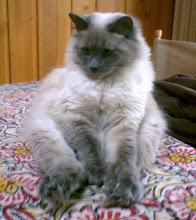
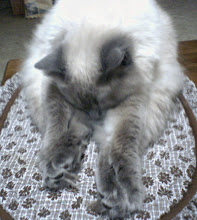.jpg)

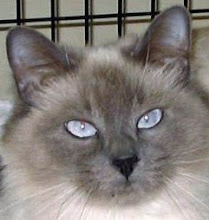

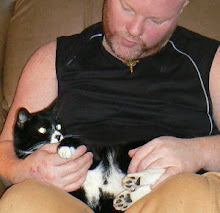
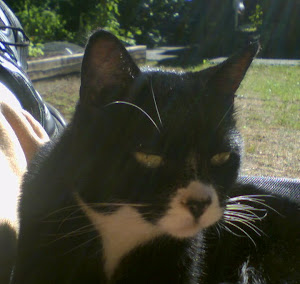
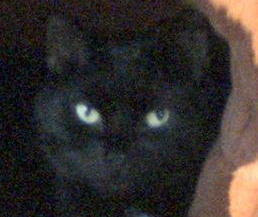.jpg)
